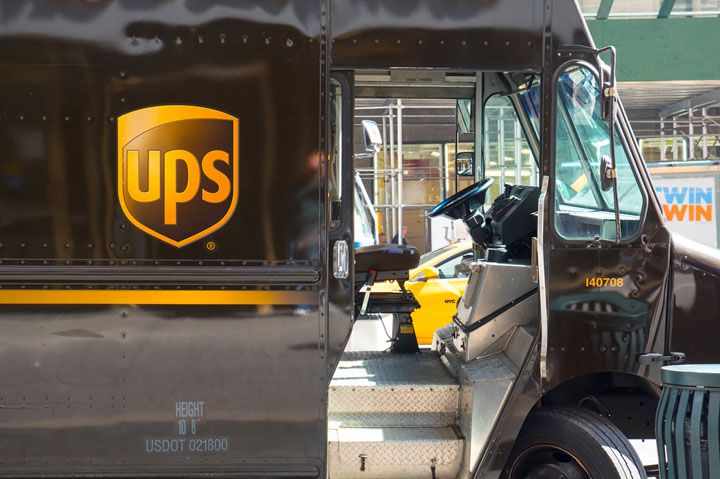August 01, 2023
More Good News for Promo on the Potential UPS Strike, But LTL Rates May Rise
Leaders for Teamsters locals have overwhelmingly approved a new contract for UPS workers, further reducing the possibility of a work stoppage. In another development, the closure of truck company Yellow could trigger higher less-than-truckload transport rates.
Another key hurdle in the potential UPS strike saga has been cleared.
On Monday, July 31, leadership for Teamsters local unions representing about 340,000 full- and part-time workers at United Parcel Service voted 161-1 to endorse a proposed new contract for the UPS drivers and logistics workers they represent.

Last week, the UPS Teamsters National Negotiating Committee unanimously endorsed the five-year tentative agreement – a development that prevented workers from taking to the picket lines on Aug. 1. The unionized labor force was prepared to strike starting that day if a tentative new contract wasn’t agreed to by then between the negotiating committee and UPS.
While the deal staved off the threat of the imminent strike, the contract still, at that point, had to be approved by leadership for Teamsters locals in the U.S. and Puerto Rico – and by rank-and-file members – before the agreement can be set in stone and strike fears put well and truly to bed.
With the vast majority of locals having now given contract a thumbs up, the agreement now goes to voting among those rank-and-file union members. Voting is expected to occur between Aug. 3 and Aug. 22.
“We are thrilled to hear that UPS and the Teamsters have reached a tentative deal. UPS is a key partner to SanMar and important to the entire U.S. economy.” Jeremy Lott, @sanmar_corp
— ASICentral (@asicentral) July 25, 2023
Read more from #ASIMedia.https://t.co/J0VubVf0Mc
“The entire UPS Teamsters National Negotiating Committee stands behind this historic contract and our UPS local unions have resoundingly voted to endorse it,” said Teamsters General President Sean M. O’Brien. “Our tentative agreement is richer, stronger and more far-reaching than any settlement ever negotiated in the history of American organized labor.”
UPS is the largest package-delivery company in the world and moves about 5% of the nation’s gross domestic product – approximately $3.8 billion worth of goods every day, according to figures from the U.S. Chamber of Commerce. A 10-day strike could cost the U.S. economy an estimated $7 billion, while also slowing down domestic shipping and making it more expensive.
Leaders in the promotional products space have heralded the tentative new contract as a huge win for the industry, which like others relies on UPS. The contract reportedly achieves union goals like increasing wages for full- and part-time workers, while also implementing enhanced health and safety protections.
Yellow Corp. Closes; LTL Rates Could Rise
In another shipping-industry development with the potential to impact promo, a trucking company with a 99-year history ceased operations on Sunday, July 30. Nashville, TN-headquartered Yellow Corp., which has 300 terminals across the United States, is reportedly laying off all 30,000 workers.
Yellow offered less-than-truckload service. LTL, as its commonly known, moves relatively small loads or quantities of freight. Yellow reportedly specialized in pallet-sized shipments, handling goods from multiple customers in a single truck. Some promo companies use LTL services to move products.
A decline in LTL freight volume, rates that came down from COVID-era highs, and an unaffordable amount of debt were factors that reportedly contributed to Yellow’s failure, analysts said.
Yellow Corp., a 99-year-old trucking company that was once a dominant player in its field, has halted operations and will lay off all 30,000 of its workers.https://t.co/ZdZ5KJRswP
— CNN (@CNN) July 31, 2023
Satish Jindel, a trucking-industry consultant, told CNN Business that Yellow transported about 7% of the United States’ 720,000 daily LTL shipments last year. There is about 8% to 10% “excess capacity in the LTL sector right now, so the closure of Yellow shouldn’t cause significant disruption in supply chains,” CNN reported.
Still, the LTL rates that companies in promo and beyond pay could rise, since it was “the excess capacity that sent prices lower,” CNN reported. Also, Yellow was known as a lower-cost LTL provider; clients accustomed to Yellow’s rates could now pay more with another provider, Jindel said. “The reason they were using Yellow was because they were cheap. They’re finding out that price was below the cost of supporting a good operation.”
